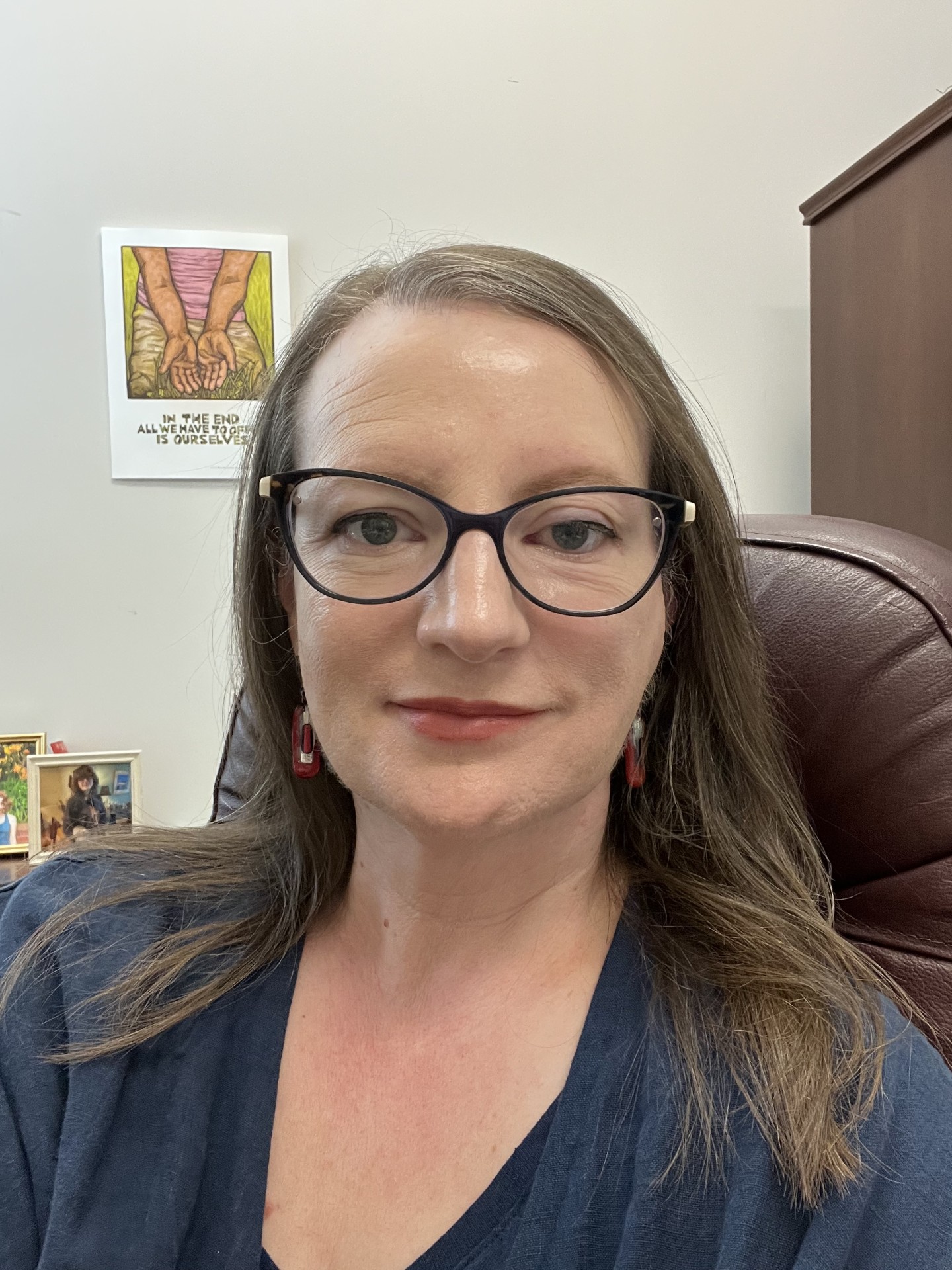About the CTE
Welcome to Your Center for Teaching Excellence
In the MTC CTE, we recognize that student success is a multifaceted journey, and while it involves many elements, you, as faculty, play a pivotal role as the primary touchpoint in this process. Our mission is to empower and support you by understanding that your effectiveness directly impacts student achievement. At the heart of the Center for Teaching Excellence (CTE) lies our unwavering dedication to nurturing your growth as educators. As we encounter an ever-changing student body, our mission is to equip you with the tools, strategies, and insights that resonate with today’s learners. We understand that the needs of our students are evolving, and so are the pedagogical approaches that best support them.
We are your partners in this journey, here to support—not dictate—your teaching practices. Our role is to offer a growing toolbox of resources and ideas that align with your goals and the diverse needs of your students. Whether you’re looking to innovate in the classroom, conquer the challenges of asynchronous learning, or refine your current approach, we’re here to collaborate with you every step of the way.
At the Center for Teaching Excellence (CTE), we're always excited to partner with faculty on ideas that enhance teaching and learning. Our instructional designers are available year-round to assist with course-related needs, whether you'd like to refine an assignment, explore new engagement strategies, improve accessibility, or integrate open educational resources. For broader initiatives, such as course redesigns, multi-section projects, or department-wide efforts, we encourage faculty to share those ideas with their Department Chair. The CTE collaborates each year with Deans and College leadership to plan upcoming programs and allocate resources, and input shared through your Chair helps ensure that your teaching priorities are represented in those discussions.
Program Coordinators, Chairs, Directors, Deans and other administrators are welcome to reach out directly to the CTE Director or through the AVP of Student Success and Retention for programmatic requests or collaborative planning.
Together, we continue to foster an environment where both students and faculty thrive!
Get to Know Us!
Meet our exceptional team of passionate educators and experts who are equally invested in your success. With diverse backgrounds and extensive experience, we bring a wealth of knowledge to guide you on your path to teaching excellence.
- Luis C. M. O de Almeida, Ph.D., Director of the Center for Teaching Excellence

Luis holds a doctorate in Instructional Systems from Penn State University. He is a two-time PRNEWS HBCU Educator of the Year, a scholar-practitioner, and a faculty developer with nearly 20 years of service in higher education. He has a proven track record of supporting faculty in designing more effective courses and promoting student success.
Featured in national outlets including The Wall Street Journal and Diversity in Action magazine for his leadership, Luis brings a strong record of institutional impact and unit refinement. He has published articles in educational technology journals, such as the British Journal of Educational Technology, and TechTrends.
Luis has designed and delivered workshops for regional, national, and international conferences, universities, and local non-profits across multiple states. An accomplished educator, he has taught in every modality—face-to-face, hybrid, online, and virtual. Luis's career reflects a consistent dedication to empowering faculty, advancing student learning and completion, and bridging technology, leadership, and education to create lasting institutional impact. He is also passionate about leveraging artificial intelligence to enhance education and innovation.
"I’m a faculty developer who listens with empathy and transforms faculty needs into strategic systems that support and advance the college’s mission."
Areas for Consult:
- Faculty development for teaching success
- Use of AI Tools for Teaching and Learning
- Course design for student success and completion
- Integrating education technology and digital tools into teaching
- Syllabus and course structure revision and redesign
Workshop design and facilitation support
luiscalmeida@midlandstech.edu
- Claire V. Houle, M.A., Instructional Designer

Claire has a decade of higher education teaching experience in College Writing and Literature, including as an adjunct for the MTC English Department. Her pedagogical foundation is in the Writing Program at University of Massachusetts—Amherst. As an instructional designer, beginning in 2014, she’s written, designed and delivered in-person and online multimedia trainings for communities and state organizations, all designed to educate and uplift. She wrote and co-directed the award-winning short documentary Come to Know the Catawba about South Carolina’s only federally recognized indigenous tribe. She currently produces and hosts the CTE’s podcast, Instructional Ecology, in addition to her regular duties as a CTE instructional designer.
Areas for consult:
- Customized teaching practices for your classes
- Syllabus and course structure re-visioning and redesign
- Writing support for professional needs including teaching philosophies
- Audio/video consultation and producer services
- Strategic planning for your professional development
- Faculty development for teaching success
- A good chat about your work at the college
houlec@midlandstech.edu
- Cameron Patterson, M.Ed., Instructional Designer
 Cameron received his B.S. in Middle Level Education and M.Ed. in Learning Design and Technology from Winthrop University. He has half a decade of experience in the SC K-12 system which he is able to use to provide alternative techniques and methods to the college and assist faculty teaching Dual Enrollment courses. Cameron has created course specific interactive learning modules, developed and delivered workshops, and has led the Online Faculty Learning Community for faculty here at the college.
Cameron received his B.S. in Middle Level Education and M.Ed. in Learning Design and Technology from Winthrop University. He has half a decade of experience in the SC K-12 system which he is able to use to provide alternative techniques and methods to the college and assist faculty teaching Dual Enrollment courses. Cameron has created course specific interactive learning modules, developed and delivered workshops, and has led the Online Faculty Learning Community for faculty here at the college.Areas for consult:
- Implementing educational technology in your classes
- Accessibility compliance
- Online teaching assistance
- Customized teaching practices for your classes
- Course structure re-visioning and redesign
- Audio/video consultation and producer services
- Strategic planning for your professional development
- Faculty development for teaching success
A good chat about your work at the college
cameronrpatterson@midlandstech.edu
- Tericia Cox Eller, M.A., Instructional Designer

Tericia Sox Eller is an Instructional Designer at Midlands Technical College with more than 26 years of experience in education and instructional technology. She holds a Graduate Certificate in Instructional Technology Facilitation from Appalachian State University and has designed and facilitated learning experiences for in-person, hybrid, and virtual environments across K–12 and higher education. Her professional background includes statewide instructional consulting, online course development, and professional learning design, with a focus on blended learning, data-informed instruction, and effective use of educational technologies. Born in West Columbia and raised in North Carolina, Tericia maintains strong ties to the region. She is the proud parent of three adult children, including a son, Nathan, a Master Sergeant in the United States Marine Corps stationed in Luxembourg, and daughters Patricia and Sarah, who are pursuing careers in hospitality management and law enforcement, respectively. Tericia is also a grandparent to three grandchildren and shares her home with two dogs, Hazel and Ripley.
Areas for consult:
- Help with OER course design
- Online course development consultations
- Refining course assignments and teaching strategies
- Assistance with student engagement strategies
- Faculty development for teaching success
tericiaeller@midlandstech.edu
CTE Guiding Principles for Designing Optimal Learning Opportunities in Community College Courses
When designing community college courses, it is important to create environments where the likelihood of learning is maximized, and success becomes inescapable. By adhering to the following guiding principles, we relentlessly promote student success and foster an educational atmosphere that is engaging and effective.
- Return to Beginnings
In community college courses, it is particularly important to keep returning to beginnings because these courses are typically at the 100 and 200 levels, designed to introduce fundamental concepts. Regardless of their backgrounds, all students are at a beginning point in some aspect of their educational journey. Whether they are encountering unfamiliar content, adapting to a new instructor's teaching style, or transitioning back into an academic setting after a hiatus, students are starting anew.
This foundational approach ensures that all learners, irrespective of their previous experiences or knowledge, have a solid grounding to build upon. By continually revisiting and reinforcing these beginnings, we create a supportive learning environment for each student. This approach not only facilitates understanding but also fosters confidence and encourages ongoing engagement and success in their educational pursuits.- Relational Learning
Relational teaching is an educational approach that emphasizes the importance of building strong, meaningful network of relationships between students and the content, the instructor, their peers, and their lives. This method recognizes that learning is not just an individual cognitive process but a social one, deeply influenced by interactions and connections within the classroom. By prioritizing relational teaching, community college educators create a classroom atmosphere that not only enhances learning but also nurtures the emotional and social well-being of their students. Content should be structured to promote meaningful interactions, which facilitate deeper understanding and a sense of community.
- Transformational Learning
In 100 and 200 level courses, content is often viewed as introductory, providing a survey of a discipline. This typically involves engaging students in lower-level Bloom’s taxonomy activities such as learning vocabulary or memorizing formulas. However, rote learning alone does not foster long-term retention. Integrating new information into personal schema significantly increases the likelihood that students can apply their knowledge effectively.
Transformational learning is critical even at these introductory levels because it is never sufficient to merely know facts and information. It is essential for students to synthesize what they learn and apply it in appropriate settings. By focusing on transformational learning goals, educators can guide students beyond memorization, helping them to understand and connect concepts deeply. This approach not only enhances retention but also prepares students to utilize their knowledge in real-world contexts, fostering a more meaningful and lasting educational experience. Transformational learning, thus, sets the foundation for lifelong learning and adaptability, skills crucial for success both within and beyond the academic setting.
- Questioning Habit of Mind
Instilling a questioning habit of mind in students significantly enhances their engagement and transforms them into active participants in their learning process, leading to a deeper understanding of the material. When students develop the habit of questioning, they not only grasp the subject matter more thoroughly but also become more invested in their educational journey. This mindset encourages continuous learning and curiosity beyond the classroom, fostering a lifelong pursuit of knowledge. By asking better questions, students gain a deeper and more nuanced understanding of topics, facilitating independent learning as they learn to navigate information and resources effectively.
Moreover, the ability to ask relevant and probing questions is crucial for success in both academic and professional settings, aiding in research, problem-solving, and innovation. Engaging in thoughtful questioning enhances critical thinking skills, allowing students to evaluate information, identify biases, and consider multiple perspectives. This skill is vital for creative and effective problem-solving, as it helps students break down complex issues into manageable parts and seek out the necessary information. Furthermore, asking better questions encourages active participation in discussions, debates, and collaborative projects, enriching the learning experience for all involved. Through this process, students are better prepared to tackle challenges both inside and outside the classroom, ensuring their academic and professional success.
- Interdependence
Interdependence underscores the collaborative nature of education, highlighting the value of diverse perspectives and collective knowledge. It is a cornerstone of successful course design in community college education, especially within the framework of guided pathways. This model ensures that each course builds upon the previous ones, emphasizing the interconnectedness of classes, faculty, and students. For students, understanding the interdependence of their courses helps them see their education as a cohesive journey rather than a series of disconnected steps. Each class is a critical link in a chain, reinforcing and expanding upon what has been learned before, enhancing retention, understanding, and ensuring better preparation for advanced courses and future careers.
Faculty play a pivotal role in this interconnected system, collaborating to align their courses with the overarching goals of the learning pathway. This collaboration creates a seamless educational experience where each course naturally progresses into the next, fostering an integrated and comprehensive learning environment. By recognizing and fostering interdependence among students, courses, and faculty, community colleges can create more effective and cohesive educational experiences, promoting deeper understanding and long-term retention of knowledge, ultimately better preparing students for their academic and professional futures.
- Transparency
Transparency is crucial in community college education as it fosters an environment of trust, clarity, and accountability. For faculty, making their thinking processes transparent is essential. By modeling their reasoning, problem-solving approaches, and decision-making in a clear and open manner, instructors provide students with valuable examples of how to think critically and analytically. This transparency in teaching not only demystifies complex concepts but also equips students with the cognitive tools needed to approach similar problems independently.
For students, transparency is vital in understanding what is expected of them and how to achieve success. Clear communication about course objectives, assessment criteria, and feedback processes ensures that students know how their performance is being evaluated and what they need to improve. This clarity makes students more accountable for their own learning, as they can see the direct link between their efforts and their outcomes. Additionally, transparency allows students to discover how the learning process functions, empowering them to make stronger connections between concepts. When students understand the criteria for success and see it applied consistently, they are more likely to take ownership of their education, engage more deeply with the material, and strive for continuous improvement. Transparency, therefore, is not just about openness but about empowering students to take control of their learning journey and achieve their full potential.
- Every Decision is Intentional
An effective approach to course design involves stepping back and creating the course with intentional focus, ensuring every teaching step has a clear purpose. This process starts with identifying the end goals—what students should know and be able to do by the end of the course—and then working backward to structure the content accordingly.
Intentional focus means that lesson plans are crafted not just around what the professor will cover, but how they will approach it. It includes strategies for engaging students, methods for assessing whether learning has occurred, and ensuring that the course design is learner-centered. By starting with the end goals in mind, instructors drive the decisions, making each choice in course design intentional and focused. This approach ensures that every component, from content selection to instructional methods, is purposefully aligned with the overarching goals of promoting optimal learning opportunities. Ultimately, intentional focus maximizes the effectiveness of the educational experience, ensuring that every aspect of the course is designed with the learner in mind.
